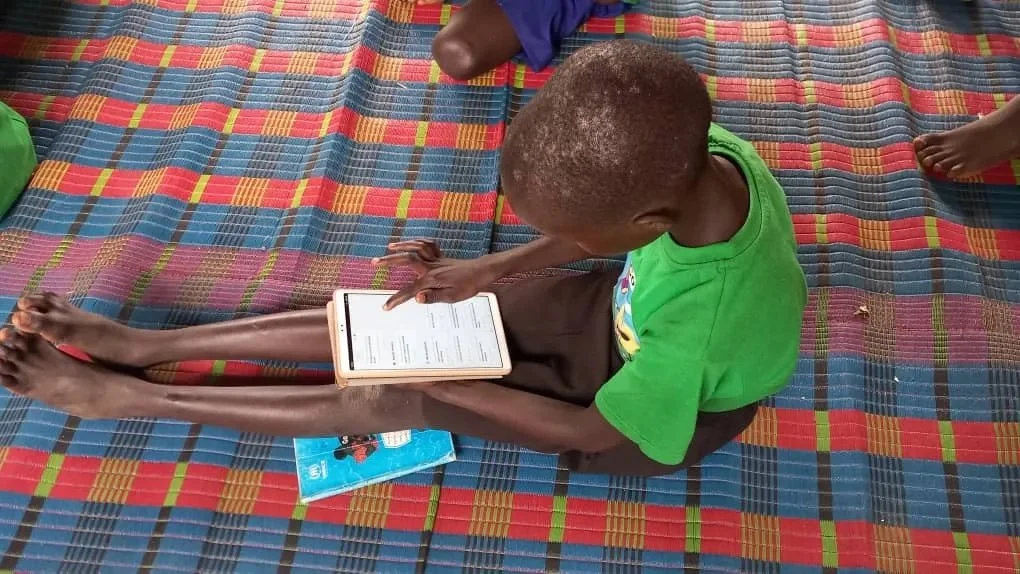Pioneering Offline AI Access with Learning Equality [Updated]
Kolibri learner at school in Palabek Refugee Settlement, Uganda. Credit: Learning Equality
Education is in the midst of a revolution. Generative-AI powered tools promise to level the playing field with personalized tutors and customized content that will keep students engaged while easing classroom burdens for educators. It’s a buzzy, exciting time to reimagine how we learn and how we teach.
Yet for millions of learners and educators who live without internet access, this vision is starkly out of reach. As their connected counterparts develop skills to create with AI and gain the benefit of tailored learning experiences, the gap for the disconnected widens to a chasm. This isn’t technology leveling the playing field. It’s inequity accelerated.
Learning Equality, a nonprofit that has been a partner to Endless for the past decade, is leading the movement to bring AI to the most disconnected communities around the world. Its focus on AI isn’t new. For over 5 years, Learning Equality has been advocating for equitable AI practices and developing AI tools to benefit some of the most underserved, disconnected educators and learners globally. In 2023, it debuted an AI-driven curriculum alignment tool that allows educators to organize customized sets of standards-aligned learning materials from the vast library in its flagship product, Kolibri. Now, it wants to put the power of these AI tools directly in the hands of its offline users, to make it easier for students and educators to discover relevant content, assess learning progress and receive personalized recommendations to guide learning.
Endless is proud to announce that we are issuing a $500k challenge to help Learning Equality pioneer its work in developing these offline AI tools. We will match $500k if Learning Equality is able to raise $500k by June 30. This work has the potential to dramatically enhance the learning experiences of 2.6 billion people who are still offline, bridging the gap and ensuring we don’t leave another generation of learners behind.
October Update!
Endless is thrilled to share exciting news! Learning Equality has successfully met our $500k challenge. This milestone underscores our shared commitment to driving innovation in offline AI that is integrated into equitable edtech tools to extend quality digital learning opportunities to underserved communities worldwide.
Learning Equality builds equity in education by ensuring that learners and educators without access to reliable internet and relevant learning resources can benefit from the most cutting-edge educational tools. The $1 million raised will allow it to continue to push the boundaries of what’s possible for edtech, especially when connectivity is not present. Learning Equality is paving the way toward a future where quality education and AI can truly reach anyone, anywhere – regardless of circumstance or connectivity constraints.
Please join us in congratulating the Learning Equality team for its tireless dedication to improving lives through education and in thanking the donors who support its important work.
You can learn more about Learning Equality here.

